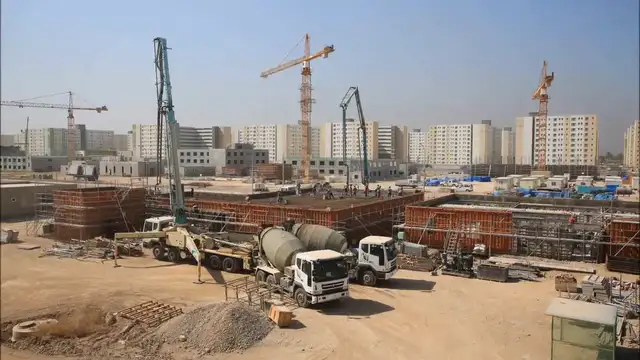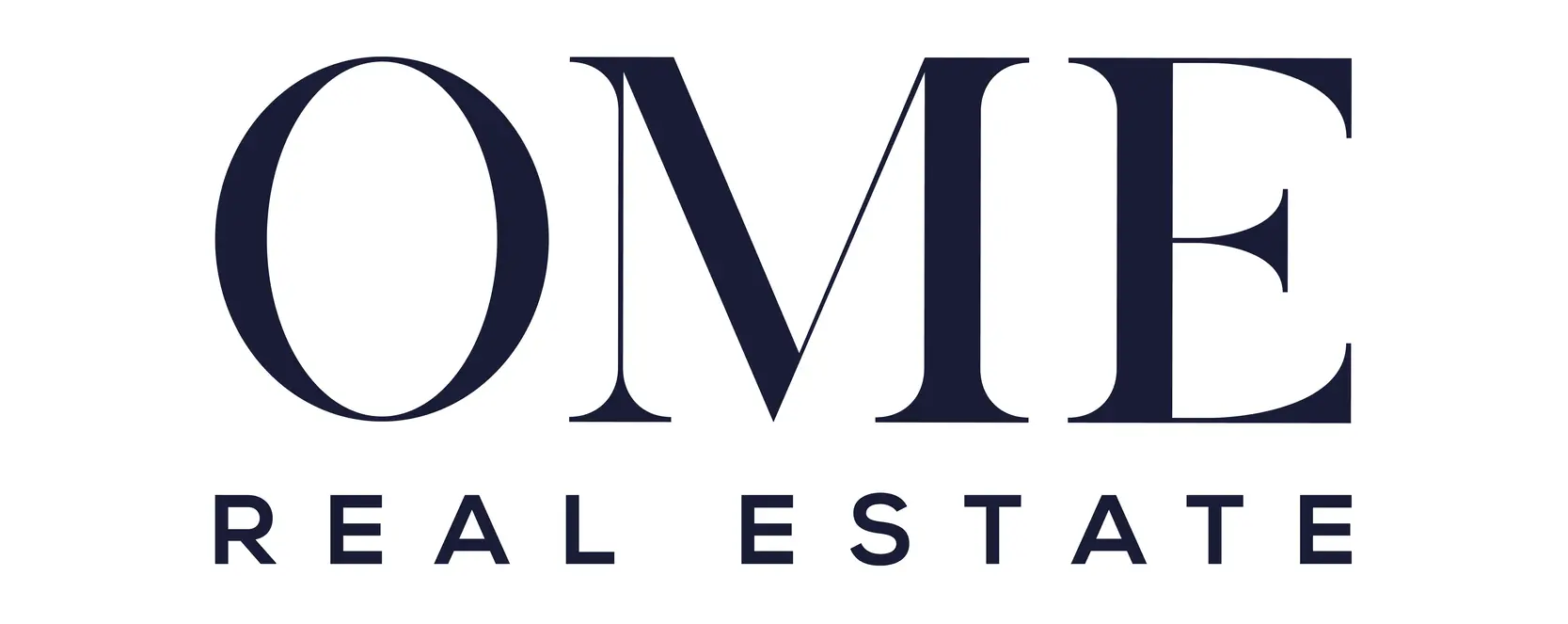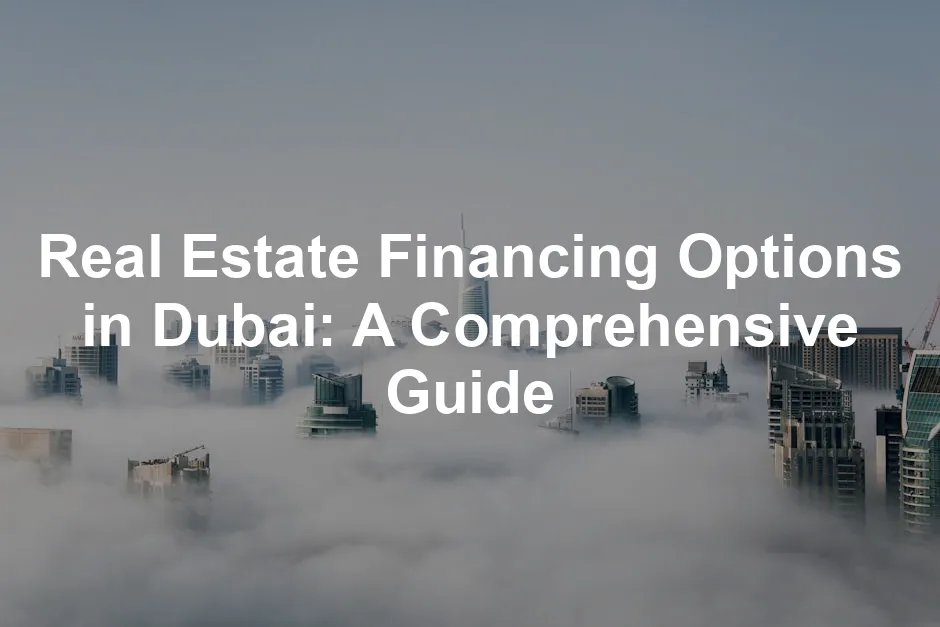Introduction
Understanding real estate financing in Dubai is vital. The city offers exciting opportunities for residents and international investors alike. With its booming property market, having a grasp of financing options can set you up for success.
Summary and Overview
Dubai’s real estate financing landscape is diverse and evolving. Demand for property ownership is on the rise, fueled by a growing population and strong economic growth. Both locals and expatriates are eager to invest, making understanding financing essential.
Prospective buyers have various avenues to explore. Traditional bank mortgages, Islamic financing, developer financing, and private lending each provide unique benefits. Understanding these options can help you make informed decisions when investing in Dubai’s vibrant real estate market.

Understanding Real Estate Financing in Dubai
What is Real Estate Financing?
Real estate financing refers to the loans used to purchase property. These loans are crucial for enabling buyers to afford homes without paying the full price upfront. Loans can come from banks, financial institutions, or developers, and they often carry varying interest rates and repayment terms.
The most common types of loans include conventional mortgages, which are standard for property purchases. Islamic financing options, such as Ijara and Murabaha, are also popular, catering to those seeking Sharia-compliant solutions. Understanding these options is key to making informed choices in your property journey.
Key Market Characteristics
Dubai’s real estate market stands out for several reasons. First, economic growth fuels demand. The city’s strategic location and business-friendly policies attract investors worldwide. This vibrant atmosphere draws a diverse crowd, creating a melting pot of cultures.
Moreover, population influx is another key driver. With many expatriates relocating to Dubai, the need for housing continues to rise. This demand stimulates construction and investment opportunities. Consequently, property values often appreciate, making real estate a lucrative endeavor.
Additionally, the government supports the sector. Programs like the UAE Golden Visa enhance investor confidence. Overall, Dubai’s real estate landscape presents unique opportunities for those looking to invest or reside in this dynamic city.

Types of Real Estate Financing Options
Bank Mortgages
Bank mortgages are the most common way to finance property in Dubai. These loans allow you to purchase real estate without paying the total upfront. Generally, banks in Dubai offer competitive interest rates, making homeownership accessible.
Most mortgage loans have terms ranging from 15 to 25 years. Interest rates typically range from 2.99% to 4.5%, depending on various factors like borrower creditworthiness.
For residents, banks often provide loans up to 80% of the property value. Non-residents usually qualify for 50-60%, reflecting the differences in risk assessment. To secure a mortgage, you’ll need a steady income, proof of employment, and a good credit score.
It’s wise to contact local banks for personalized mortgage consultations. They can help tailor options to your financial situation.

Islamic Financing
Islamic financing options offer Sharia-compliant methods for purchasing property in Dubai. These alternatives are popular among those seeking ethical investment paths.
One common model is Ijara. In this arrangement, the bank buys the property and leases it to you. Over time, you make payments that contribute to ownership.
Another model is Murabaha. Here, the bank purchases the property and sells it to you at a marked-up price, allowing for deferred payments.
These financing options often come with competitive rates, making them appealing for both local and international investors. If you’re interested, explore the offerings from Islamic banks to find the right fit for your real estate investments.
Developer Financing
In Dubai’s real estate market, developer financing is a popular option for buyers. Many developers provide direct financing plans, making it easier for individuals to purchase property. This approach often includes flexible payment plans, allowing buyers to manage their finances better.
For instance, prominent developers like Emaar offer attractive financing solutions. They allow buyers to pay a small initial down payment, sometimes as low as 5-10%. This can make purchasing off-plan properties more accessible for many investors.
Another appealing aspect of developer financing is the extended payment terms. Buyers can pay for their properties in installments, often over several years. This arrangement can significantly ease the financial burden and help you invest in a property without a hefty upfront cost.
Additionally, some developers offer interest-free payment periods, which can be quite beneficial. These terms allow you to secure a property while minimizing immediate expenses.
If you’re looking to invest in Dubai, researching available properties and financing options with developers can open doors to exciting opportunities. This can lead to owning a beautiful home in one of the world’s most vibrant cities, while also benefiting from the developer’s support.

Rent-to-Own Options
Rent-to-own schemes are gaining traction in Dubai, offering a unique pathway to homeownership. These arrangements allow tenants to rent a property with the option to purchase it later. A portion of the monthly rent typically contributes to the property’s purchase price, helping buyers build equity over time.
One of the main benefits of rent-to-own options is accessibility. Buyers can move into their desired home without a hefty down payment. This can be particularly appealing for first-time buyers or those who may not have enough savings for a traditional mortgage. Furthermore, these arrangements often provide time for buyers to improve their credit scores, making it easier to secure financing when the time comes to purchase.
However, it’s essential to understand potential pitfalls. Not all rent-to-own agreements are created equal. Some may come with hidden fees or vague terms regarding the purchase price. It’s crucial to read contracts carefully and consult with legal professionals to avoid misunderstandings.
In Dubai, the popularity of rent-to-own arrangements is on the rise, reflecting a shift in how people approach homeownership. This method offers flexibility and a practical solution for many residents. Investigate available rent-to-own opportunities in the market to find a suitable option that aligns with your financial goals.

Eligibility Criteria for Residents and Non-Residents
When considering real estate financing in Dubai, knowing the eligibility criteria is crucial. For both residents and non-residents, banks typically require proof of income, a stable job history, and a solid credit history. Most lenders look for a minimum monthly income of around AED 15,000 for salaried employees, while self-employed individuals should show higher earnings.
For UAE residents, the loan-to-value (LTV) ratio can reach up to 80% for properties valued below AED 5 million. Non-residents, however, can usually secure only 50-60% of the property value. This difference reflects the varied risk assessments by lenders.
If you’re looking to navigate this process smoothly, preparing necessary documents is vital. Having all your paperwork ready can streamline your application and improve your chances of approval.

Required Documentation for Financing
Securing a mortgage in Dubai requires specific documentation. Here’s a checklist to help you prepare:
- Valid Emirates ID or passport
- Residency visa (for residents)
- Salary certificate or proof of income
- Bank statements for the past six months
- Proof of down payment
- Property valuation report
Having a good credit score is essential. It plays a significant role in determining your eligibility and the interest rates offered. A strong credit history not only increases your chances of approval but also helps you secure better loan terms.
If you’re feeling overwhelmed, don’t hesitate to consult with financial advisors. They can help you streamline the documentation process and guide you through the application stages effectively.

If you’re looking for the best areas to buy property in Dubai, check out this comprehensive guide for investors. Best areas to buy property in Dubai
Please let us know what you think about our content by leaving a comment down below!
Thank you for reading till here 🙂
All images from Pexels

